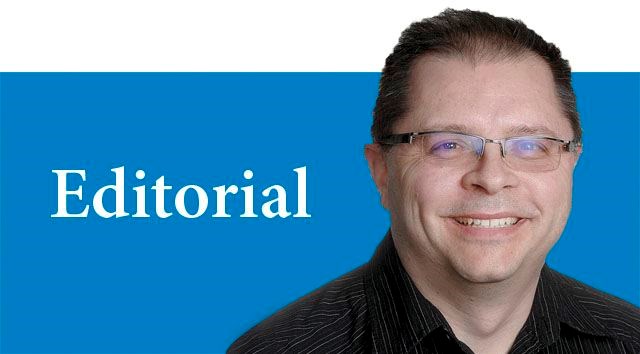Thank you, Loralyn Murdoch and your team at UNBC Athletics, for bringing in yet another great speaker for the UNBC Timberwolves Legacy Breakfast.
At the fourth annual athletics program fundraiser in February, longtime TSN host Michael Landsberg will be the keynote speaker, following Theo Fleury, Michael "Pinball" Clemons and Hayley Wickenheiser.
The choice of speakers sends a powerful message because all four of these individuals are well-known for their accomplishments in the sporting world, including sports journalism in Landsberg's case, while also overcoming significant personal adversity.
Wickenheiser adopted the young son of her former boyfriend in the prime of her athletic career. When she spoke in Prince George in 2015, she appeared on crutches, her foot in a cast after surgery to repair a foot broken blocking a shot... in 2012. In other words, she played two full seasons, as well as her final Olympics, scoring two goals and three assists in five games to lead Canada to another gold medal in women's hockey, with a fractured bone in her foot.
Wounded but not weak.
Clemons was told all his life that he was too small to play football,. Yet he kept playing through his childhood, into a university scholarship, into a Kansas City Chiefs uniform and then - because he wanted to play, not sit on the sidelines - to the Canadian Football League, where set records and won Grey Cups as a player and a coach.
Little but not weak.
Fleury is a survivor of sexual abuse at the hands of his junior hockey coach, yet still went on to have an incredible National Hockey League career (still waiting for that call to the Hockey Hall of Fame) before major substance abuse and addiction ended his career. Today, he serves as an advocate for those victims.
Traumatized but not weak.
And now Landsberg, who in recent years has joined a growing group of Canadian athletes and celebrities acknowledging their own personal battles with depression and mental health issues as part of a campaign to increase awareness and knowledge.
He has thrown his efforts into the #sicknotweak campaign and is speaking openly about his longtime struggle with depression.
Whether it's Landsberg or Clara Hughes in sports or Bruce Springsteen, Beyonce and Adele in the music world, fame, wealth and career success does not feed the inner demons. In the cases of Chris Cornell of Soundgarden and Chester Bennington of Linkin Park (and that's just this year), taking one's life becomes the tragic, permanent escape from the anguish no one can see.
Numerous individuals accomplish great things because of their mental health challenges, plowing their energies into their work to crowd out the self-doubt and self-loathing, their ever-present feelings of unworthiness, fear and anxiety fueling their desire to do more.
Eventually, the body tires of the fight and the work, unable to hold back the negativity, flooding the mind with a virus of depression every bit as debilitating as any physical ailment.
It's worse, of course, because the pain and anxiety can't be heard through a stethoscope or an ultrasound, can't be seen on an X-ray or an MRI, can't be detected with a blood or saliva test.
No one likes to be around sick people, particularly those who are depressed, so those with mental health issues mask it, self-medicate and/or hide away, not wanting to burden family and friends, not wanting to be judged as weak or flawed.
The worst part is the loneliness, the solitary struggle. That's why the more people who speak up about their challenges, how they cope and what gives them solace and strength is important.
In my twenties, I had my own bouts with depression and anxiety that required counselling and medication. A decade later, a difficult end to my first marriage and the sudden, accidental death of the son of a close friend brought those feelings back for a short but excruciating time. Joining Rotary to spend more time helping others, driving myself harder at work, writing and publishing three young adult novels and the surprising discovery of the love of the most beautiful woman I have ever met all helped restore me to some degree of normalcy, whatever that is.
I seek no attention or sympathy by disclosing my own minor mental health issues. Like others who have spoken up, I only hope for increased understanding and sensitivity of this affliction and those suffering from it.
Underneath our busy, smiling facades, everybody hurts, some more than others.
Overcoming adversity not only makes us better athletes and teammates, it makes us better people. It makes us want to help others beat their demons.
Looking forward to hearing Landsberg's story in February.



